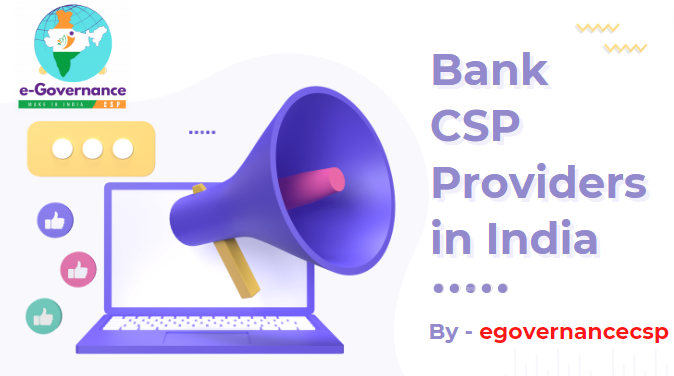In India, bank CSP providers have been in the news a lot lately. In early January 2019, the Reserve Bank of India (RBI) banned private banks from providing credit services to companies. This move was in response to the mounting bad debt crisis in the banking sector. The ban affects all private banks, including those who offer credit card products and other financial services to businesses.
The decision has created a lot of confusion for companies that rely on bank CS providers for their day-to-day operations. Many companies are now looking for alternate sources of funding.
Introduction: What is a bank CSP provider and what does it offer?
A bank CSP provider is a company in India that provides cloud-based solutions for banks. These solutions allow banks to manage their financial data, automate their processes, and improve their security. The bank CSP provider offers various services to banks, including: -Back-office processing -Payments processing -Banking interfaces and APIs -Credit card processing (not all providers offer this service) The bank CSP provider typically provides a turnkey solution that is designed specifically -To meet the needs of a particular bank and its clients, the CSP provider has designed a solution to fit the specific needs of that bank. This means that the solution is tailored to fit the way in which your bank does business.
Comparison of the top five bank CSP providers in India
India is a country with a burgeoning population and an increasing number of businesses. With more businesses comes an increased need for banking services. In order to meet this need, there are five major banks in India that offer customer service support points (CSPs). These CSPs provide various services such as account opening, checking accounts, mortgages, and other financial products and services.
In order to compare the five leading CSP providers in India, we looked at their features, pricing policies, customer service ratings, and how easy it was to use their services. All five providers offer similar features and pricing policies; however, customer service ratings varied significantly. The two highest-rated providers had Excellent ratings while the lowest-rated provider had only Good ratings. It was easy to use all of the providers’ services; however, some were easier than others.
In India, the top five CSP providers are Citibank, HDFC Bank, Axis Bank, ICICI Bank, and State Bank of India. They offer a variety of banking products and services to consumers, including personal loans, credit cards, and bank accounts. The CSP providers also have their own app and online platforms that provide users with access to their account information and financial tools.
Benefits of using a bank CSP provider
When it comes to choosing a bank CSP provider, there are a lot of things to take into account. Some important factors to consider include the bank’s size and the type of infrastructure they have in place. Here are some interesting facts about bank CSP providers in India:
- In India, there are over 20 different bank CSP providers.
- The majority of bank CSP providers are based in Mumbai and Delhi.
- Bank CSP providers typically offer a range of services, including fraud detection and anti-money laundering protection.
- Bank CSP providers in India have been around for over 10 years now.
- The main reason banks choose to partner with a bank CSP provider is to ensure that their customers are protected from fraud and other financial crime.
- Bank CSP providers in India have a range of different products and services to offer their customers.
- Bank CSP providers in India are regulated by the Department of Financial Services (DFS).
Things to consider before choosing a bank CSP provider
Choosing the right bank cloud security provider is an important decision, but there are a few things you need to consider before making your choice.
First, ask yourself what kind of security you need. There are three types of security banks need to protect their data: physical, logical and application. Physical security protects the physical bank infrastructure, such as computer systems and data centres. Logical security protects the organization’s data and business processes by identifying and blocking unauthorized access to systems and data. Application security protects applications that run on bank IT systems, such as customer relationship management (CRM) software or online banking platforms.
Next, assess your current threat landscape. Do you know what type of attacks are targeting your bank? If not, research which kinds of attacks are being launched against banks currently and see if a CSP can help mitigate those risks. Next, assess your current threat landscape. Do you know what type of attacks are targeting your bank? If not, research which kinds of attacks are being launched against banks currently and see if a CSP can help mitigate those risks.
Which bank Customer Service Provider is best for you?
There are many customer service providers out there, so which one is the best for you? In this article, we will discuss the pros and cons of each provider to help you decide which one is right for you.
Some important things to consider when choosing a customer service provider are: their reputation, how quickly they respond to queries, how helpful their support staff are, and how affordable their services are. Make sure to read all of the reviews before making a decision, as feedback can help you find the best option for your needs. You can find out more about the best customer service providers on our website.

